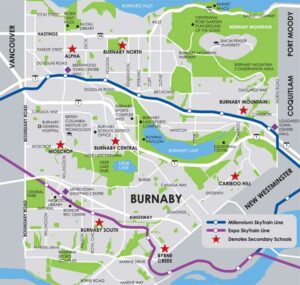ในปัจจุบันมีการอ้างอิงถึงการใช้กัญชาในการรักษามะเร็งอย่างแพร่หลาย แต่หากเรามองลงไปให้ลึกถึงหลักฐานทางวิชาการที่กลุ่มผู้สนับสนุนกัญชามาใช้อ้างอิง เราจะพบความไม่น่าเชื่อถือดังนี้
- การทดลองยังอยู่ในขั้นทดลองกับเซล์หรือสัตว์ไม่ใช่ในคน มีผลรายงานในคนเพียงหนึ่งการวิจัยเท่านั้น และเป็นการวิจัยในคน 9 คนเท่านั้น เป็นการทดลองให้สารสกัดจากกัญชาแก่คนไข้มะเร็งสมอง แต่สุดท้ายคนไข้ 9 คนนี้ก็เสียชีวิต ระยะเวลาเฉลี่ยที่เสียชีวิตคือหลังได้รับสารสกัดกัญชา 24 สัปดาห์
- รายงานวิจัย ไม่มีรายงานการทดลองสนับสนุนผลการทดลองในเวลาต่อมา ตรงนี้สำคัญมากเพราะหากไม่มีใครในโลกสามารถทำการทดลองซ้ำได้ เราจะเชื่อถือผลการทดลองนั้นได้อย่างไร
- การรายงานผลบอกแต่ด้านดีของกัญชาแต่ไม่รายงานถึงงานวิจัยอื่นที่แสดงผลด้านลบของกัญชาเช่น ก่อให้เกิดการอักเสบในทางเดินหายใจ ทำให้การทำงานของเซล์เยื่อบุทางเดินหายใจทำงานได้แย่ลง พบอาการไอและมีเสมหะเรื้อรัง สารเคมีที่ได้จากการสูบกัญชาเป็นกลุ่มเดียวกับบุหรี่ที่ก่อให้เกิดมะเร็งปอด นอกจากนี้ยังส่งผลเสียต่อกระบวนการคิดวิเคราะห์การตัดสินใจของสมอง จนเป็นสาเหตุสำคัญสาเหตุหนึ่งในการเกิดรถชน
สรุปคือมีการทดลองใช้สารสกัดจากกัญชาในการทดลองต้านมะเร็งจริง แต่ยังอยู่ในขั้นของเซลล์และสัตว์ทดลองเท่านั้น ยังไม่มีการทดลองว่าได้ผลเช่นไรในคน การทดลองที่ได้ผลดีในเซลล์และสัตว์ไม่ได้หมายความว่าจะได้ผลดีเหมือนในคน เราควรรอให้มีหลักฐานและผลการวิจัยกับคนเสียก่อน ซึ่ง ณ ปี พ.ศ. 2557 ยังพูดไม่ได้ว่ากัญชารักษามะเร็งตามคำกล่าวอ้าง
เอกสารอ้างอิง
- Joshi M, Joshi A Fau – Bartter T, Bartter T. Marijuana and lung diseases. 2014.
- Guzman M, Duarte Mj Fau – Blazquez C, Blazquez C Fau – Ravina J, et al. A pilot clinical study of Delta9-tetrahydrocannabinol in patients with recurrent glioblastoma multiforme. 2006.
- Callaghan RC, Allebeck P Fau – Sidorchuk A, Sidorchuk A. Marijuana use and risk of lung cancer: a 40-year cohort study. 2013.
- van der Stelt M, Veldhuis WB, Bär PR, Veldink GA, Vliegenthart JFG, Nicolay K. Neuroprotection by Δ9-Tetrahydrocannabinol, the Main Active Compound in Marijuana, against Ouabain-Induced In Vivo Excitotoxicity. The Journal of Neuroscience 2001;21:6475-9.
- Massi P, Vaccani A, Ceruti S, Colombo A, Abbracchio MP, Parolaro D. Antitumor Effects of Cannabidiol, a Nonpsychoactive Cannabinoid, on Human Glioma Cell Lines. Journal of Pharmacology and Experimental Therapeutics 2004;308:838-45.
- Torres S, Lorente M, Rodríguez-Fornés F, et al. A Combined Preclinical Therapy of Cannabinoids and Temozolomide against Glioma. Molecular Cancer Therapeutics 2011;10:90-103.
- McAllister SD, Murase R Fau – Christian RT, Christian Rt Fau – Lau D, et al. Pathways mediating the effects of cannabidiol on the reduction of breast cancer cell proliferation, invasion, and metastasis. 2011.
- Ligresti A, Schiano Moriello A, Starowicz K, et al. Anti-tumor activity of plant cannabinoids with emphasis on the effect of cannabidiol on human breast carcinoma. Journal of Pharmacology and Experimental Therapeutics 2006.
- Caffarel M, Andradas C, Mira E, et al. Cannabinoids reduce ErbB2-driven breast cancer progression through Akt inhibition. Molecular Cancer 2010;9:196.
- De Petrocellis L, Melck D, Palmisano A, et al. The endogenous cannabinoid anandamide inhibits human breast cancer cell proliferation. Proceedings of the National Academy of Sciences 1998;95:8375-80.
- Ramer R, Bublitz K, Freimuth N, et al. Cannabidiol inhibits lung cancer cell invasion and metastasis via intercellular adhesion molecule-1. The FASEB Journal 2012;26:1535-48.
- Preet A, Qamri Z, Nasser MW, et al. Cannabinoid Receptors, CB1 and CB2, as Novel Targets for Inhibition of Non–Small Cell Lung Cancer Growth and Metastasis. Cancer Prevention Research 2011;4:65-75.
- Mimeault M, Pommery N, Wattez N, Bailly C, Hénichart J-P. Anti-proliferative and apoptotic effects of anandamide in human prostatic cancer cell lines: Implication of epidermal growth factor receptor down-regulation and ceramide production. The Prostate 2003;56:1-12.



